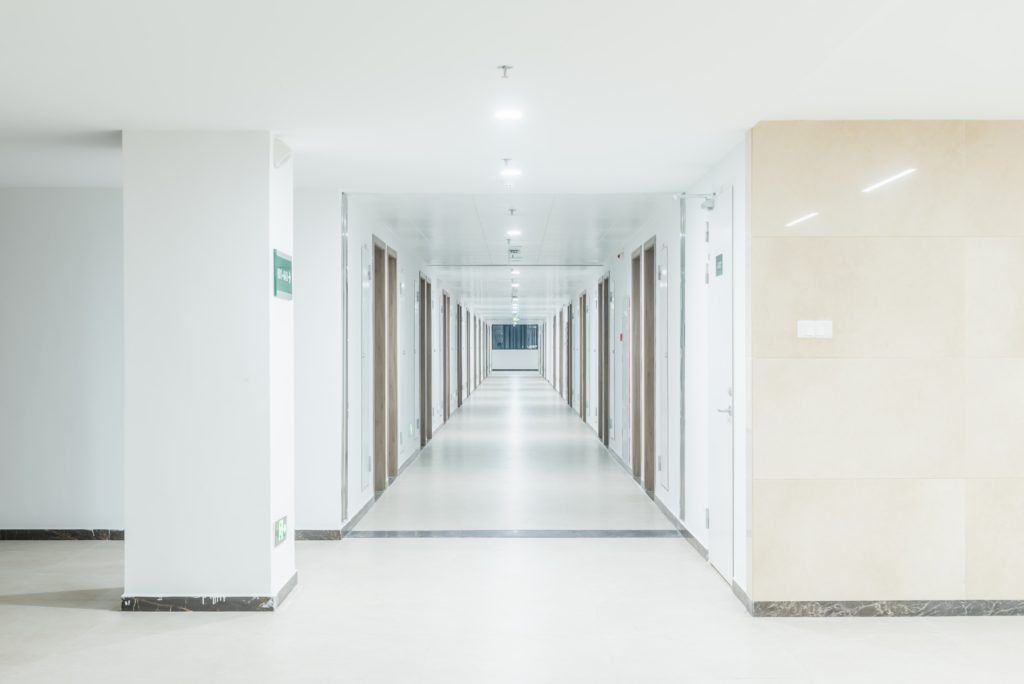
Treatment
My father’s weekly chemotherapy session begins. His kind and seasoned nurse, Ella, pats him on the shoulder and says, “Last one.” Her tone is both resolute and celebratory. Her words mark a moment of hope.
We won’t know for several weeks whether this is indeed my dad’s last round of chemo. His doctors, though positive and cautiously optimistic, cannot say definitively what the next steps will be until my dad finishes radiation in a couple of weeks and then waits four to six more weeks before having another round of scans. That’s when we will know whether the growth on his lower esophagus, located near his stomach, has been eradicated or at least shrunk sufficiently for him to have surgery to remove it.
“Surgery is the goal,” his oncologist says, having stopped by to check on my dad. “And the plan will be to refer him to a terrific team at Emory; they do this surgery all the time.” He pauses, looks at me, and says, “If he were my dad, that’s where I’d want him to go.”
Ironically, in two days my older daughter will visit Emory University as we take our first steps into the world of college tours.
Memories
My father’s drip continues, dropping powerful medicines into his body. While killing cancer they also make him nauseous, zap his energy, and lead to nights of fractured sleep, among other disruptions.
He drifts off into sleep, a blanket over his legs and a recliner wrapping his now more slender body.
I sit at his side and watch him sleep for a brief time, and then my mind drifts to a number of memories we’ve shared—his waving me home as I touched third base, us high-fiving one another at the Indianapolis 500 when I was in my 20s, him smiling and giving me two thumbs up as I walked up the aisle of the chapel at Princeton University, having received my Ph.D. and eager to embark on an academic career.
In these moments, all of them embossed in my memory, he gifted me support and encouragement, urged me to dream big, work hard, and believe good things will follow. He guided me while also releasing me to live my own life, travel my own path, and, as we used to say, “Be my own man.”
He was and is my hero, and for a long time, a part of me believed he was almost invincible. I could say the same about my devoted mother, who models living with courage and resolve.
Moments
The nurse returns one last time just as the last plastic bag of medicine drips dry. My dad says, “Even though this is my last scheduled treatment I’m coming back next week to see all of you. Thank you for all you’ve done for me.” Ella says, “Mr. Cole, you’re always welcome. We won’t give you any medicine next week but you can visit anytime.”
My dad stands up from the recliner, smooths out the tape covering the gauze Ella applied to his forearm where the IV was placed, and walks through double doors and down a long hallway toward the lobby, where he will check in for his radiation treatment.
I walk beside him, offering support and encouragement, seeking for words to help keep him strong and dreaming big, urging him to believe good things will happen as his cancer story unfolds, just as his doctors have indicated is their belief.
Heros
As we sit together in the lobby, watching other cancer patients and their people come and go, I have an even deeper sense of the weight of illness. I especially feel the weight of watching someone you love living with the disruptions, discomfort, and disorienting effects of illness, which makes me think of my mother, my wife and children, and myself.
I think, too, of all of us who are on journeys with illness ourselves—Parkinson’s, MS, cancer, diabetes, and so many more—and those of us who will be. I think of our heroes, our dreams, and our tendency to live as if those we love—and maybe we ourselves—are almost invincible.
The radiology technician walks over and says, “Mr. Cole, we are ready for you.” My dad and I stand up and I walk with him and the technician to the double doors that open to another long hallway and end at the radiation room.
My dad looks over at me and says, “Let’s do this.”
I give him two thumbs up and watch him walk away.
__________
Photo by Scarbor Siu on Unsplash
Allan Cole is Dean of the Steve Hicks School of Social Work at The University of Texas at Austin, where he also serves as the Bert Kruger Smith Centennial Professor in Social Work and, by courtesy, as Professor of Psychiatry and Behavioral Sciences at the Dell Medical School. Diagnosed with Parkinson’s in 2016, at the age of 48, he is the author or editor of many books on a range of topics related to chronic illness, bereavement, anxiety, and spirituality. His latest books are Discerning the Way: Lessons from Parkinson’s Disease (Cascade), In the Care of Plenty: Poems (Resource Publications), and Counseling Persons with Parkinson’s Disease (Oxford University Press). Follow him on Twitter @PDWise.
